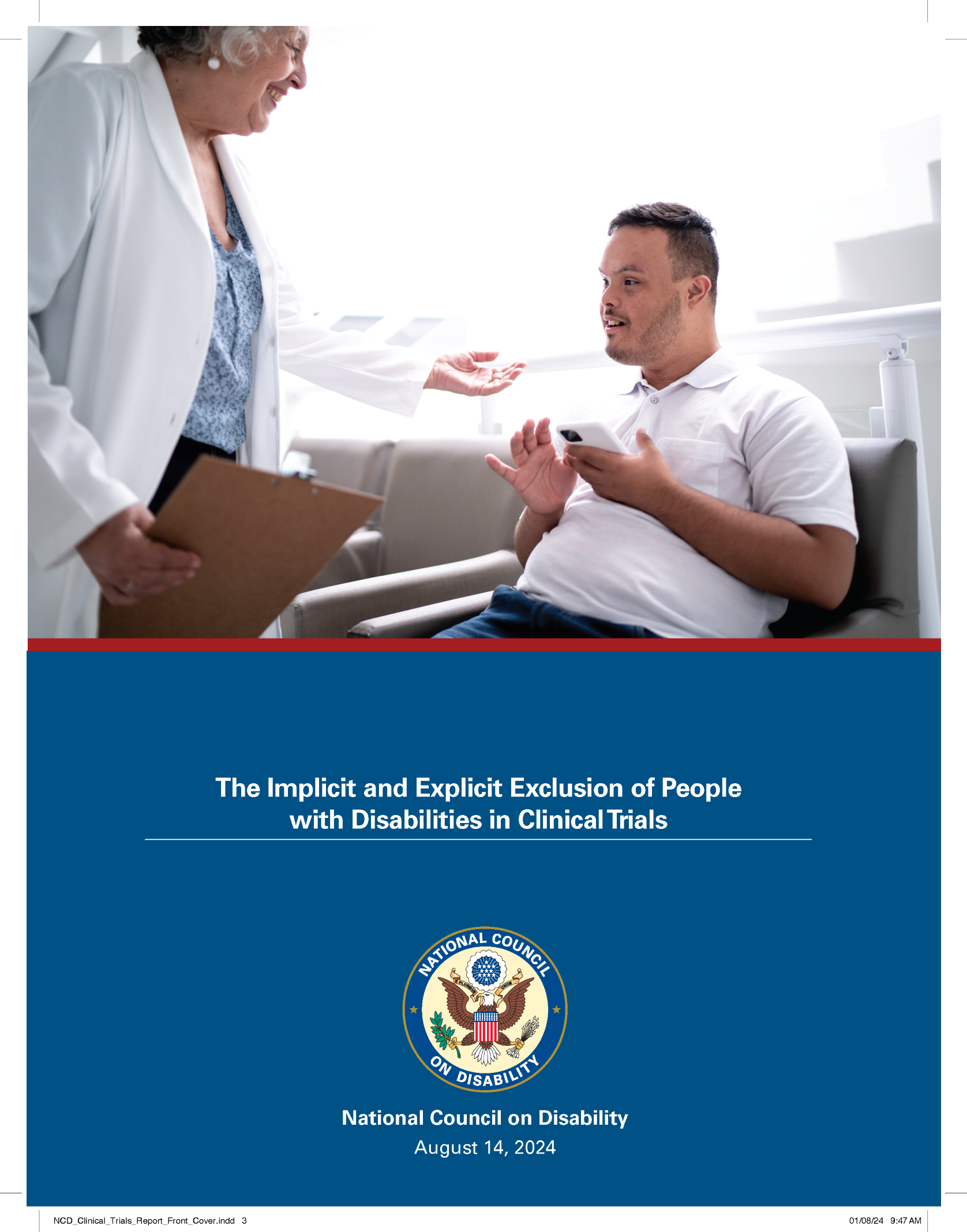The Implicit and Explicit Exclusion of People with Disabilities in Clinical Trials

SCOPE AND PURPOSE:
Sixty one million Americans, or 26% of U.S. adults, live with a disability and are routinely excluded from clinical trials, thereby limiting their access to life-changing or even life-saving healthcare resources. Despite the designation by the National Institutes of Health of people with disabilities as a population with health disparities, implicit and explicit bias, which results in exclusion in clinical trials, contributes to poorer health outcomes for people with disabilities than their non-disabled peers. Although federal agencies have, in recent years, made efforts to address exclusionary practices in clinical trials pertaining to people with disabilities, including explicit requirements of clinical trials inclusion in the amended section 504 regulations, much work remains to ensure that people with disabilities are meaningfully included in clinical trials.
This report highlights exclusionary practices that prevent people with disabilities from participating in clinical trials, discusses how healthcare practitioners’ internal biases and federal policies contribute to the participation rate, and how the disparity affects people with disabilities and the efficacy of clinical trials.
This report offers recommendations for federal agencies, Congress, and healthcare practitioners in the hopes of improving the participation rate of people with disabilities in clinical trials.
Key Findings:
• Multiple efforts in recent years have been made to enhance diversity in clinical trials; however, disability is not included as a dimension of diversity in such efforts.
• The inclusion and exclusion criteria embedded in clinical trial criteria can create barriers for people with disabilities – often without scientific justification.
• Clinical trials for Alzheimer’s therapeutics have excluded people with Down syndrome, even though 90 percent of people with Down syndrome will develop Alzheimer’s by the age of 55.
Key Recommendations:
• FDA and HHS should develop guidance on eligibility parameters for investigators, similar to FDA’s “Informed Consent: Guidance for IRBs, Clinical Investigators, and Sponsors.”
• Clinical trial study teams should incorporate overt explanations and justifications of the availability of reasonable accommodations in informed consent documents.

